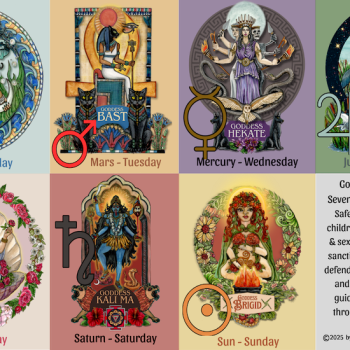Lectionary Reflections
Genesis 37:1-4, 12-28
August 10, 2014
Thomas Mann wrote a huge retelling of the story of Joseph entitled Joseph and His Brothers, filling four volumes and some fifteen hundred pages. It is hardly beach reading, but it is a very serious attempt by a major 20th-century novelist to tell the ancient story of Genesis in a fresh and engaging way. I commend it to any of you who have the time, the energy, and the interest to take it on. If I were you, I would give myself some months to complete the task, but it is a worthwhile one—in the main.
However, if you imagine that Mann's retelling is the only way one might perform that task, then you are wrong. As always, when anyone attempts a biblical retelling, whether great novelist or aspiring preacher, the possibilities are many, not one only. Great stories lend themselves to multiple hearings. If a story can only be told in one way, then it is mere propaganda, and is hardly worth the telling in the first place. I certainly have first-hand evidence in my own fledgling novelistic career. My novel, King Saul, was recently published; it is a retelling of the stories from the biblical book of 1 Samuel, and is my retelling. Others will certainly hear those magnificent tales in other ways, and that is fine and fully appropriate, as long as they take the text as seriously as I have tried to do.
After I read Mann's superb work, I happened on an article by a mid-20th-century rabbi named Maurice Samuel. Samuel, too, had read Mann's novel and made the following conclusion: "C'est magnifique, mais c'est ne pas Joseph." In English, "It is magnificent, but it is not Joseph." I quite agree. Mann's novel presents a Joseph who is altogether laudatory, deeply connected to his God, the savior of his family and finally of Egypt. This is only partly true, as any careful reading of the text of Genesis 37-50 will demonstrate.
Today we approach the beginning of the long saga by hearing the initial story of Joseph, his father Jacob, and his brothers, as they live together in the land that will later be Israel. The seventeen-year-old Joseph "was shepherding the flock with his brothers"; more specifically, the brothers who were "the sons of Bilhah and Zilpah, his father's wives" (though in other places they are named "concubines" or "maids," Gen. 37:2). These boys are Dan, Naphtali, Gad, and Asher (see Gen. 30:3-13). The brothers that will be at the center of this story are rather sons of Leah, particularly Reuben and Judah.
Immediately, after this rather innocuous beginning, the story turns dark. "Joseph brought to their father a bad report of them" (Gen. 37:2). Where on earth does this come from? The very first thing we learn about the hero, Joseph, is that he is a tattletale, a spy sent to tell the father what the other boys are up to! No reason is given for this trait directly, but the very next sentence may offer insight. "Now Israel (Jacob) loved Joseph more than all of his children, because he was the son of his old age, and he had made him a long-sleeved coat" (Gen. 37:3). What the special garment is, of course, is not at all clear. The KJV named it famously "the coat of many colors," but that appears to have no real relationship to the Hebrew, though it does appear to be something like how the Septuagint translates the phrase. Jacob has singled out the son of his old age by making for him something that he fails to offer to any of his other sons. We of course remember that Jacob was himself loved especially by his mother Rebekah, who in the attempt to trick his dying blind father out of the patriarchal blessing, used clothes to advance the deception. As we said some weeks ago, the trick may or may not have worked, but the point is that clothes have again become a source of tension in a story of Genesis.
The result of the gift of this wonderful garment is predictable. As Joseph parades his resplendent self among his brothers, perhaps flashing his great robe before them, it is abundantly obvious that he is Dad's pet, so "the brothers saw that their father loved him more than all of his brothers, and they hated him and could never say 'shalom' to him" (Gen. 37:4). Even the most common greeting stuck in the brothers' throats whenever Joseph showed up flaunting that stinking robe!
Foolishly, the lectionary collectors, always for reasons of time, I presume, have left out of the reading for today the crucial verses 5-11. We must read them, because we learn two important facts. Joseph is a clever interpreter of dreams, a skill that will ultimately save his life in Egypt, elevating him to an amazingly powerful position in pharaoh's court. Also, his eager recounting of these dreams in the less-than-eager ears of his seething brothers only adds to their increasing fury at their arrogant sibling. His two dreams, first of shocks of wheat bowing down to his larger shock, and then, of all narcissistic twaddle, the sun and the moon bowing down to him (!), cause the brothers nothing less than an enraged apoplexy (Gen. 37:8), even bring his father, who loves the boy to distraction, to a very sharp rebuke of his favorite (Gen. 37:10).





